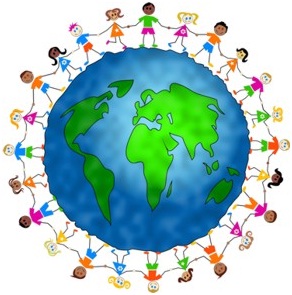 33 of 48 least developed countries are on the African continent. That means that 70% of the world’s poorest countries are in Africa and that 60% of the entire continent is considered underdeveloped. The African continent only contributes 1% to the global economy. Less than 10% of land in Africa is owed, and only 1 in 10 Africans live in a house with a formal deed and title (Moran, et.al., 2015).
33 of 48 least developed countries are on the African continent. That means that 70% of the world’s poorest countries are in Africa and that 60% of the entire continent is considered underdeveloped. The African continent only contributes 1% to the global economy. Less than 10% of land in Africa is owed, and only 1 in 10 Africans live in a house with a formal deed and title (Moran, et.al., 2015).
M168 in our DNA can trace every one of us back to the African continent – needless to say, there is a tremendous amount of diversity present in Africa. Europeans imposed their control, and borders on the continent (Moran, et.al., 2015, p. 505) leading to extensive tribal conflict throughout Africa. Consider that there are over 2,000 languages in Africa, there are distinct groups who identify with one another based upon a common ancestry. Ethnicity then plays a major role not only in everyday life, but certainly in leadership through putting tribal and ethnic ties above that of national interest (Moran, et.al., 2015, p. 504).
There is frequently a feeling in leadership that friends get rewarded, there is nepotism in politics and leadership, and corruption is rampant in African leadership (Ntata, 2015). There are also tremendous challenges with AIDS, and a general problem of this being addressed (Moran, et.al., 2015). Africa needs effective leadership.
I also happen to be from the African continent. I was born and raised in South Africa, and I lived through the end of the apartheid era, and the election of one of the greatest leaders ever, Nelson Mandela. He was the epiphany of servant leadership, and it’s a shame that other African leaders can’t follow such an exemplary and classic example.
References:
Moran, R. T., Abramson, N. R., Moran, S. V., & Harris, P. R. (2014). Managing cultural differences. Abingdon, Oxon: Routledge.
Ntata, Z.A. (June 1, 2015). 7 Challenges of Leadership in Africa. LinkedIn. Retrieved on 11/29/17 from https://www.linkedin.com/pulse/7-challenges-leadership-africa-z-allan-ntata






 here goes… My name is Yolandi, I am currently finishing my BS in organizational leadership and have two more semesters to go. I can see the light at the end of the tunnel.
here goes… My name is Yolandi, I am currently finishing my BS in organizational leadership and have two more semesters to go. I can see the light at the end of the tunnel. I love this quote by Nelson Mandela because it’s something that can be applied to every single challenge in personal issues as well as in a business context. “The greatest glory in living lies not in never falling, but in rising every time we fall.”
I love this quote by Nelson Mandela because it’s something that can be applied to every single challenge in personal issues as well as in a business context. “The greatest glory in living lies not in never falling, but in rising every time we fall.”